Events
RSPCA has held a series of events, bringing together hundreds of people from across the world, to share knowledge and ideas, and promote practical approaches to avoiding and reducing severe suffering. Participants usually include representatives from government authorities involved in the regulation of animal research, National Committees on animal experiments, and local Animal Welfare Bodies at institutions, veterinarians, scientists, animal facility managers, animal technologists, 3Rs centres and individuals involved in delivering education and training related to laboratory animal science. We are also regularly invited to contribute on the theme of severe suffering to meetings convened by other relevant organisations. Details of past events can be found in the boxes below.
Upcoming events
Sign up to the RSPCA Animals in Science newsletter in order to receive more information on our upcoming events.
16th FELASA Congress 2025 – Athens, Greece
We participated in the 16th Federation of European Laboratory Animal Science Associations (FELASA) Congress in Athens, Greece. The Congress, organised by FELASA and the Hellenic Society of Biomedical and Laboratory Animal Science (HSBLAS), was attended by over 2,000 participants from 52 countries, making it an important platform for us to showcase and share our vital work on Severe Suffering.
This year’s theme was ‘Reducing Severity in Animal Research’ and included sessions on ‘Demonstrating Ethical Awareness and Accountability’, ‘Reducing severity’, ‘Improving Care and Welfare’, ‘Fostering Culture of Care’, and ‘Aiming for a better future’, where attendees had the opportunity to refine their knowledge and share their experiences.
We had a big presence throughout the Congress and actively participated in many sessions by chairing, presenting, and facilitating workshops.
Sharing our work in Avoiding and Reducing Severe Suffering
Most of our work was presented in the ‘Reducing severity’ session, where we convened three different workshops:
- We held a ‘user session’ workshop to demonstrate our ‘Roadmap to reducing severe suffering’. The Roadmap is a practical exercise that helps you to focus on procedures in your institution that could cause severe suffering, identify contributing factors and find ways of avoiding or refining these. Our highly sought-after workshop was attended and well-received by 40 participants. This 90-minute workshop also resulted in various requests to facilitate this same session in other countries, such as Switzerland and Mexico.
- We convened, chaired, and presented at the workshop ‘Identifying sub-lethal clinical signs in fishes’, which focused on recommendations from our 2023 UK meeting on regulatory toxicology tests using fishes. Mortality is a key cause of severe suffering, and there can be an increased risk of this in tests using fishes, e.g. in regulatory toxicology procedures within OECD 203 and OECD 210 testing guidelines. This workshop included presentations from prominent experts in welfare and refinements for fishes, followed by a discussion. The session explored how progress could be made in identifying sub-lethal clinical signs and applying humane endpoints, as well as identifying positive actions for all those involved in the care and use of fishes. Two key points were the need for more, better quality training in welfare assessment for people at all career stages, and more use of score sheets.
- We convened and chaired a workshop on ‘Retrospective Assessment of projects involving procedures classified as severe’, that enabled participants to share good practice approaches to effectively conduct retrospective assessments. The session focused on the requirement to review ‘severe’ procedures, looking at harms and benefits, how effectively the 3Rs were implemented, and ways of sharing insights internally and externally. The presentations were followed by a discussion session exploring current processes for conducting retrospective assessments, including any challenges people face. Similarly to the previous workshop, needs were identified for more training, and feedback, for researchers doing retrospective assessments.
Besides convening, chairing, and facilitating workshops, we also presented two posters in this session:
- Humane endpoints in regulatory toxicology for fishes. Participants of our 2023 UK meeting on regulatory toxicology tests using fishes identified that there is currently insufficient guidance on identifying sub-lethal clinical signs, and applying humane endpoints, for fishes used in toxicology tests. This poster highlights the roles and actions of relevant groups to tackle these issues, and proposes practical recommendations to avoid them.
- Focus on severe suffering – picking the high-hanging fruit. This poster calls attention to some of the areas of research and testing that are harder to refine to reduce severe suffering and includes important action points to overcome them. You can use it to help reduce severity in protocols that are more challenging to refine.
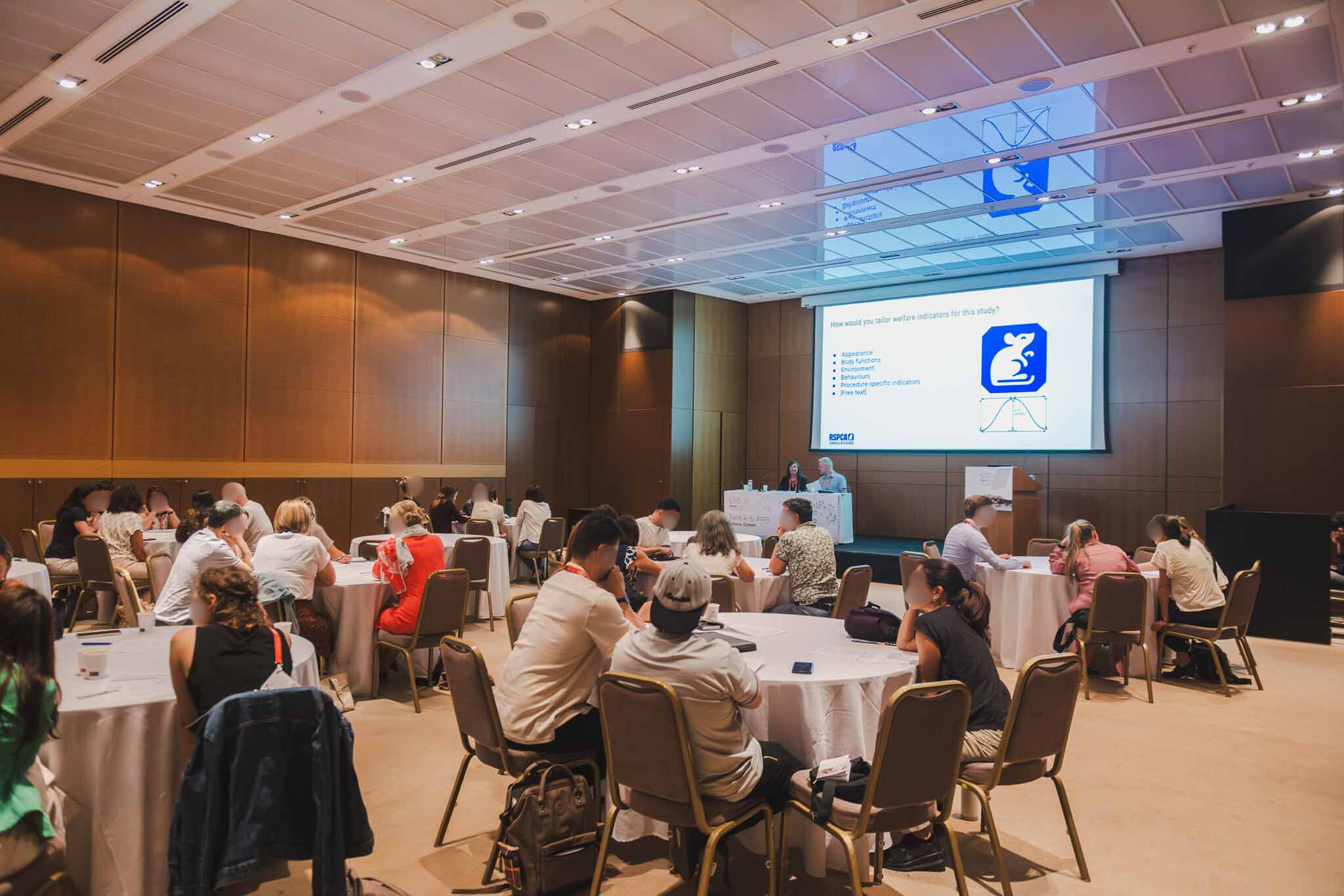
6th international meeting – Gentilly, France 2024
Read the full report: FoSS Gentilly Meeting Report
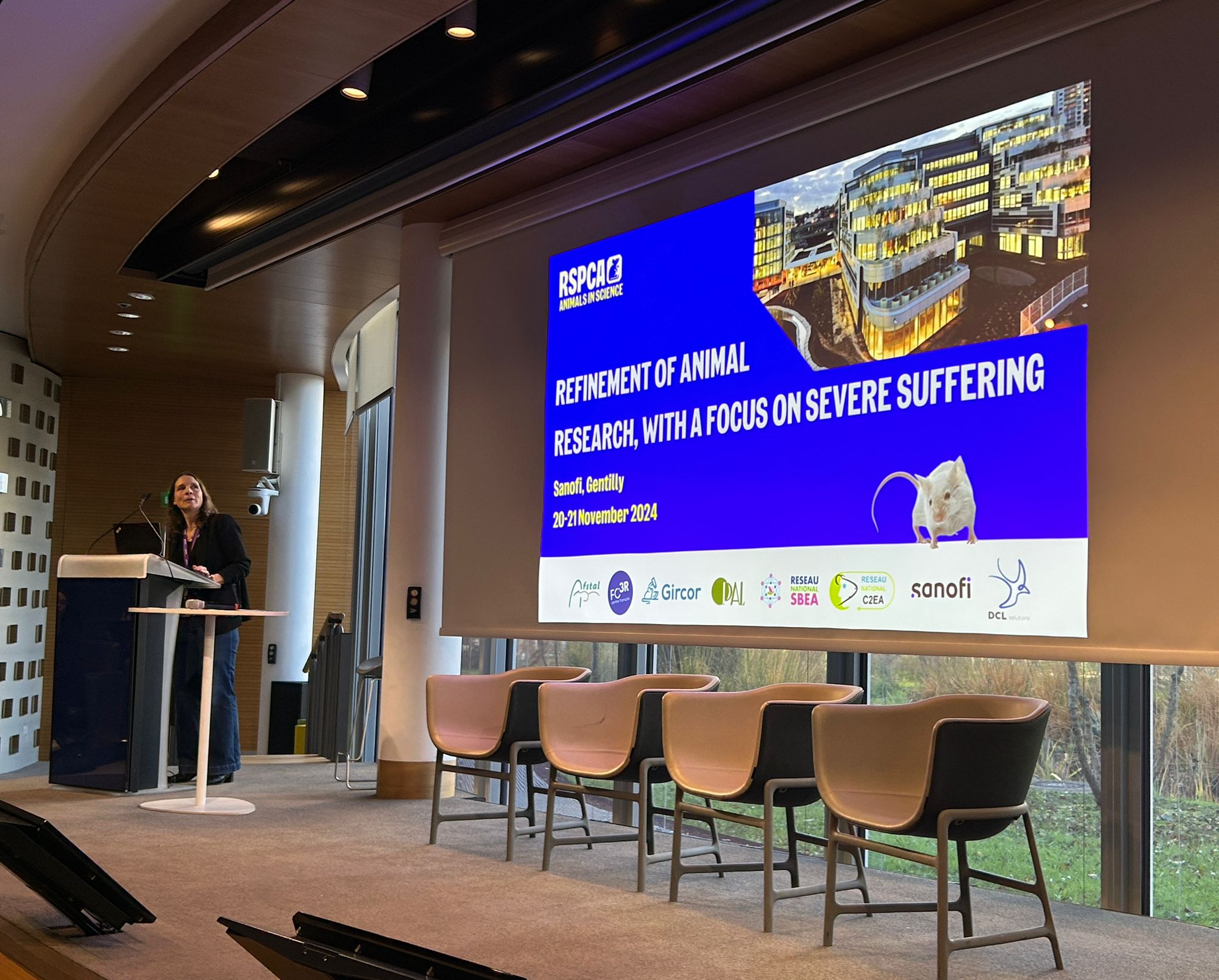
Minimising pain – Newcastle, UK 2024
Read the full report: FoSS Newcastle Summary Report
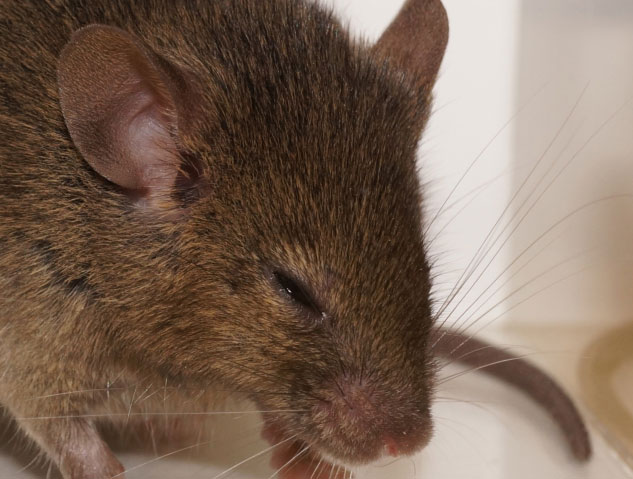
Humane endpoints in regulatory toxicology – Surrey, UK 2023
- Case studies on identifying sublethal indicators in acute toxicology tests
- Improvements in training for animal technologists
- Use of technology in animal monitoring
Summary report: Focus on Severe Suffering – Humane Endpoints in Regulatory Toxicology
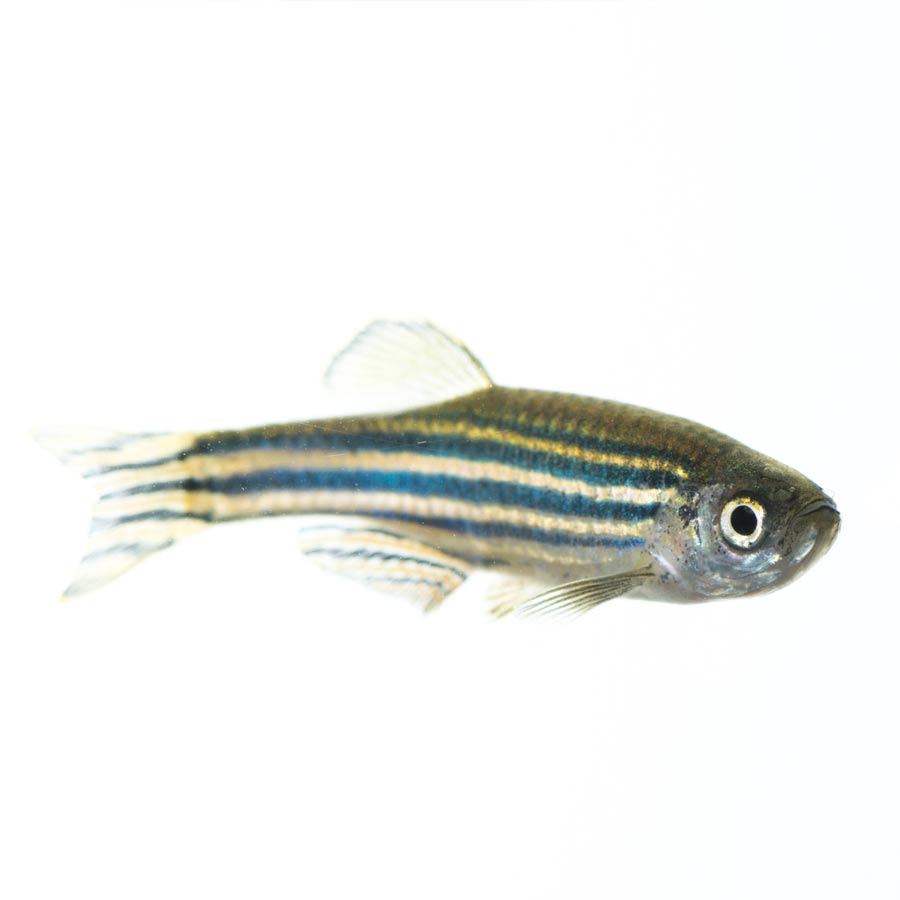
5th international meeting – Cumulative severity – Leiden, Netherlands 2023
- Progress of the ‘Focus on severe suffering’ initiative in the UK and Europe
- Case studies on reducing severity
- Experiences and perspectives from scientists and Animal Welfare Bodies
- A group workshop on implementing the Roadmap in practice
Summary report: Focus on Severe Suffering – Cumulative Severity.
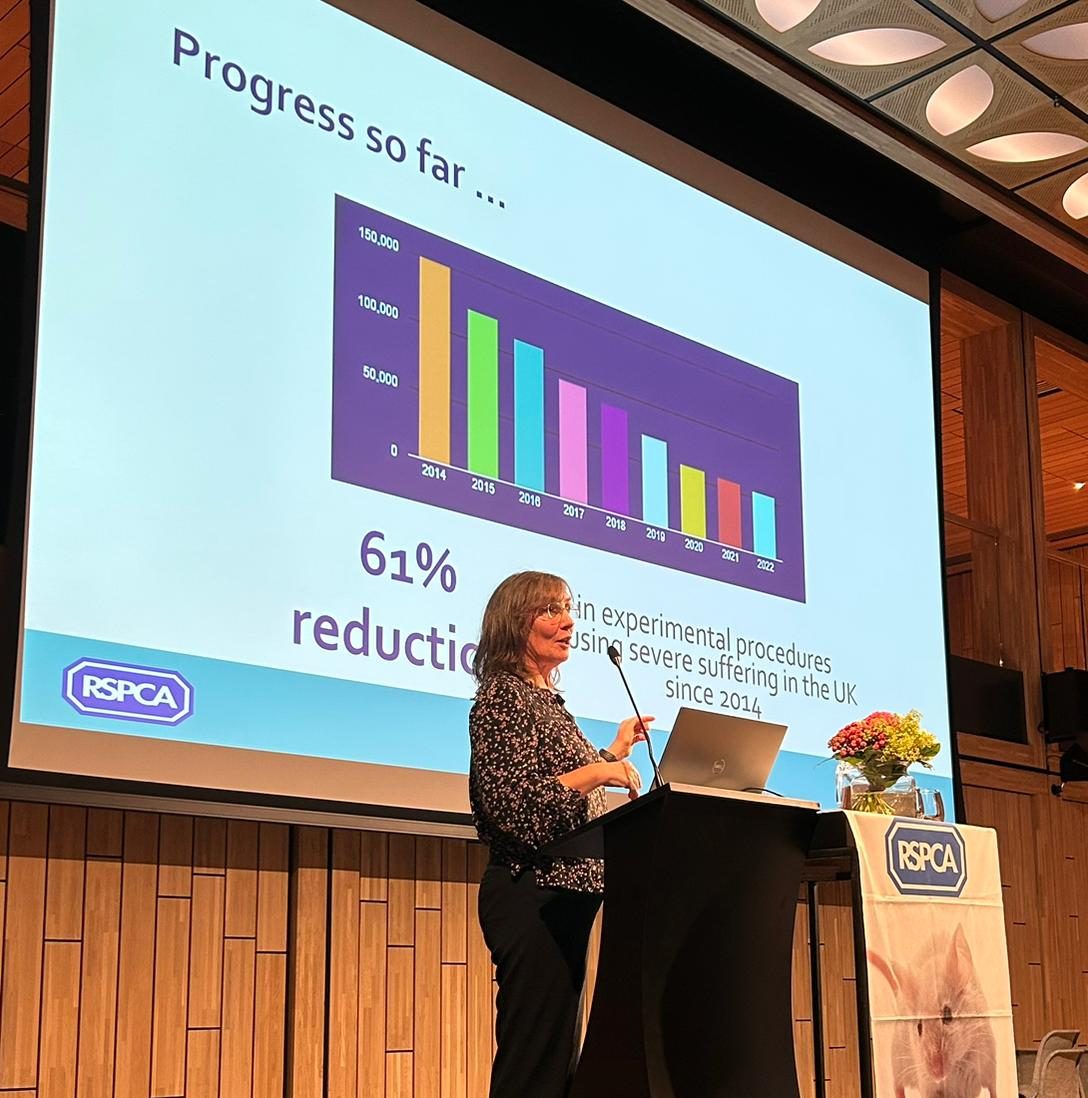
9th AFLAS Congress – South Korea, 2023
On 13-15 September we attended the 9th Asian Federation of Laboratory Animal Science Associations Congress. We were invited to co-organise and chair a session on ‘Avoiding and reducing animal suffering – opportunities for implementing the 3Rs’. As part of this session we gave a presentation, sharing information and the impacts of our initiative aimed towards ending ‘severe’ suffering.
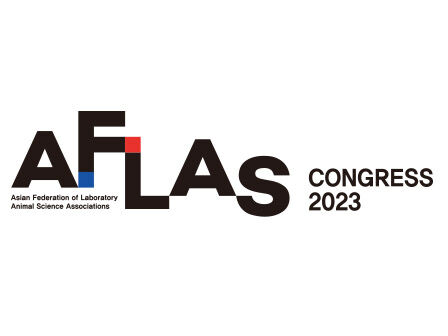
12th World Congress on Alternatives and Animal Use in the Life Sciences – Canada, 2023
On 27-31 August we attended the 12th World Congress on Alternatives and Animal Use in the Life Sciences. We convened a symposium on ‘Reducing severe suffering – time for a strategic approach’.
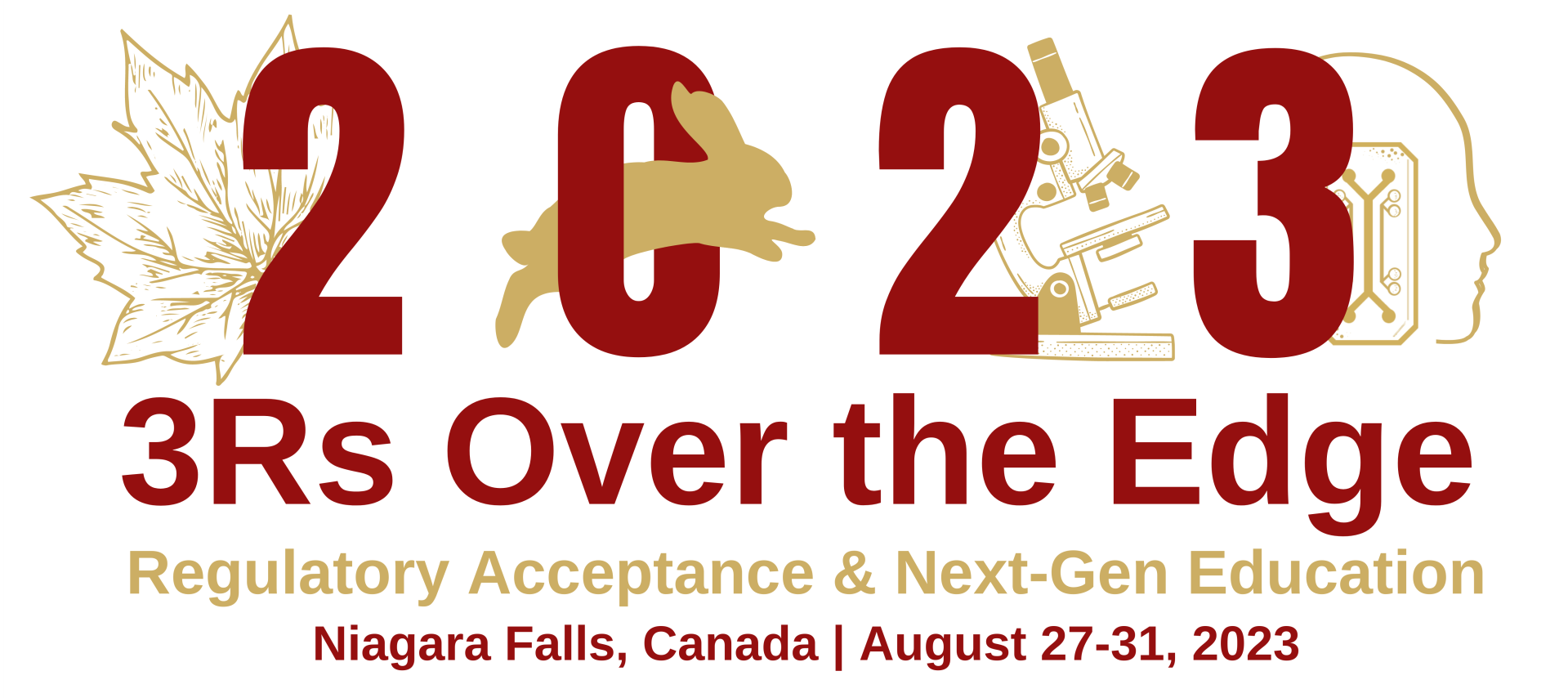
Reducing severity – supportive care – online, 2023
- Implementing the Roadmap
- Case studies on reducing severity in practice
- Driving forward a culture of care
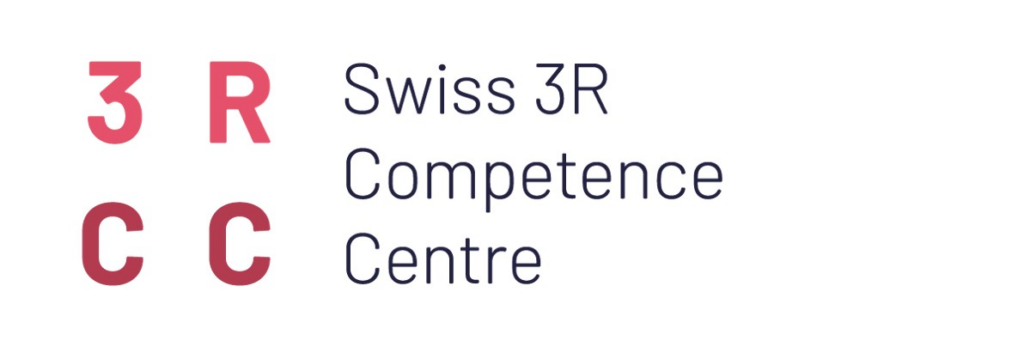
Severe suffering in animal experiments and how to refine – online, 2022
Presentation: Working together to end severe suffering (PDF 2.14KB)

4th international meeting – Refining severe disease models and procedures – Stockholm, Sweden 2022
Summary report: 4th RSPCA international meeting (PDF 254 KB)
Presentations from the four sessions: Introduction and case studies in basic and applied research (PDF 14.9 MB), Retrospective assessment of severe procedures (PDF 10.5 MB), Case studies in regulatory testing (PDF 7.7 MB) and Looking to the future (PDF 7.7 MB)
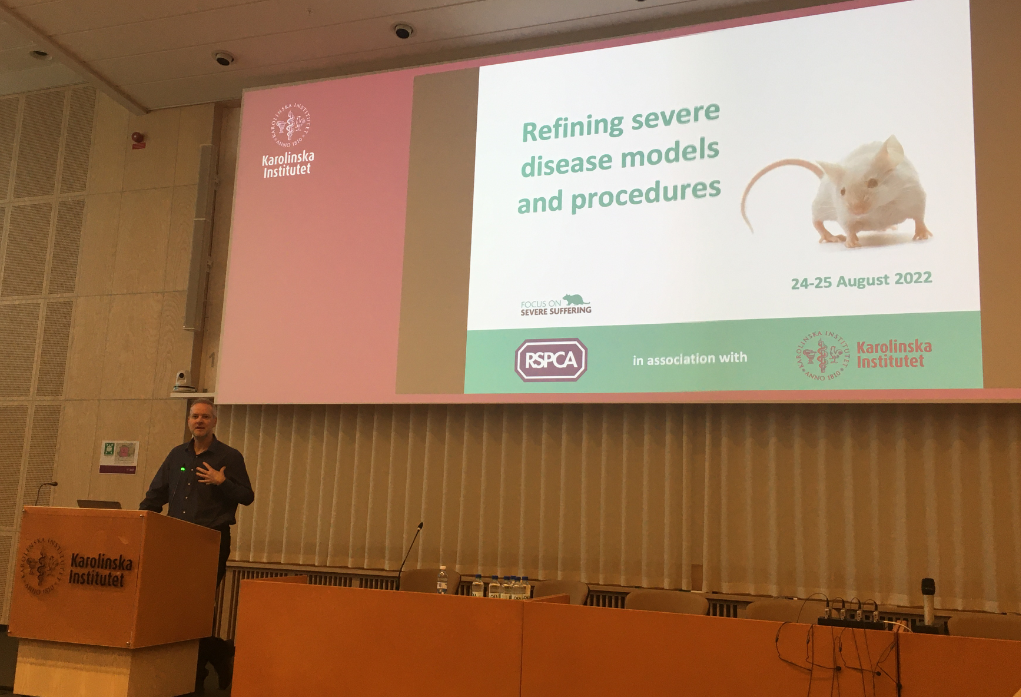
Working together to end ‘severe’ suffering – FELASA Congress, Marseille 2022
Slide set introducing the session and explaining the ‘Roadmap’ approach (PDF 2.9 MB)
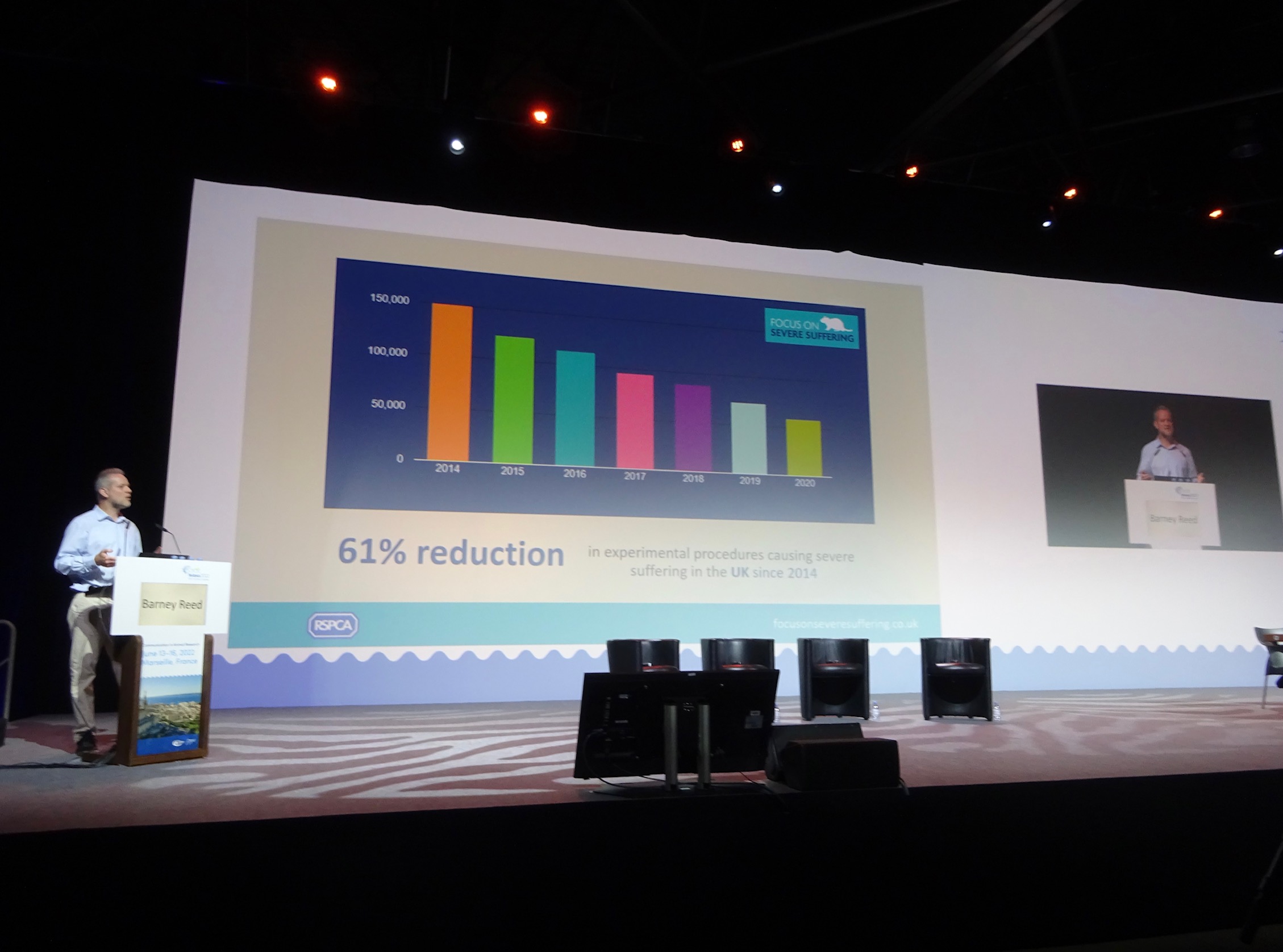
Looking forward and looking back – opportunities to focus on ‘severe’ suffering – Manchester, UK 2022
This meeting was held in association with the University of Manchester. It included sessions on:
- the Roadmap to reducing suffering
- animal diseases and disorders
- looking back – retrospective assessment
Presentations (PDF 6.4MB) from the event, and slide set with AWERB discussion topics (PPT 406KB)
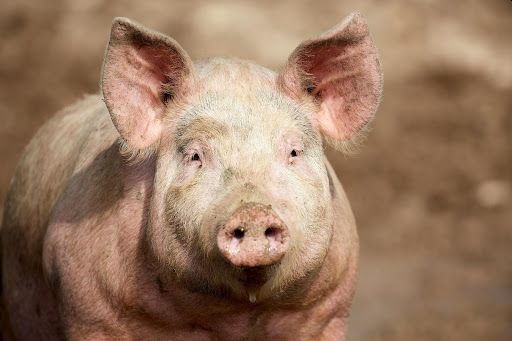
Focus on fish – online, 2022
Topics covered in our second ‘virtual’ conference on practical refinements for fish used in research and testing, included:
- PREPARE for fish research
- what zebrafish want
- anaesthesia protocols
- humane endpoints
- humane killing
- 3Rs and alternatives
Summary report: Focus on Fish II (PDF 120KB)
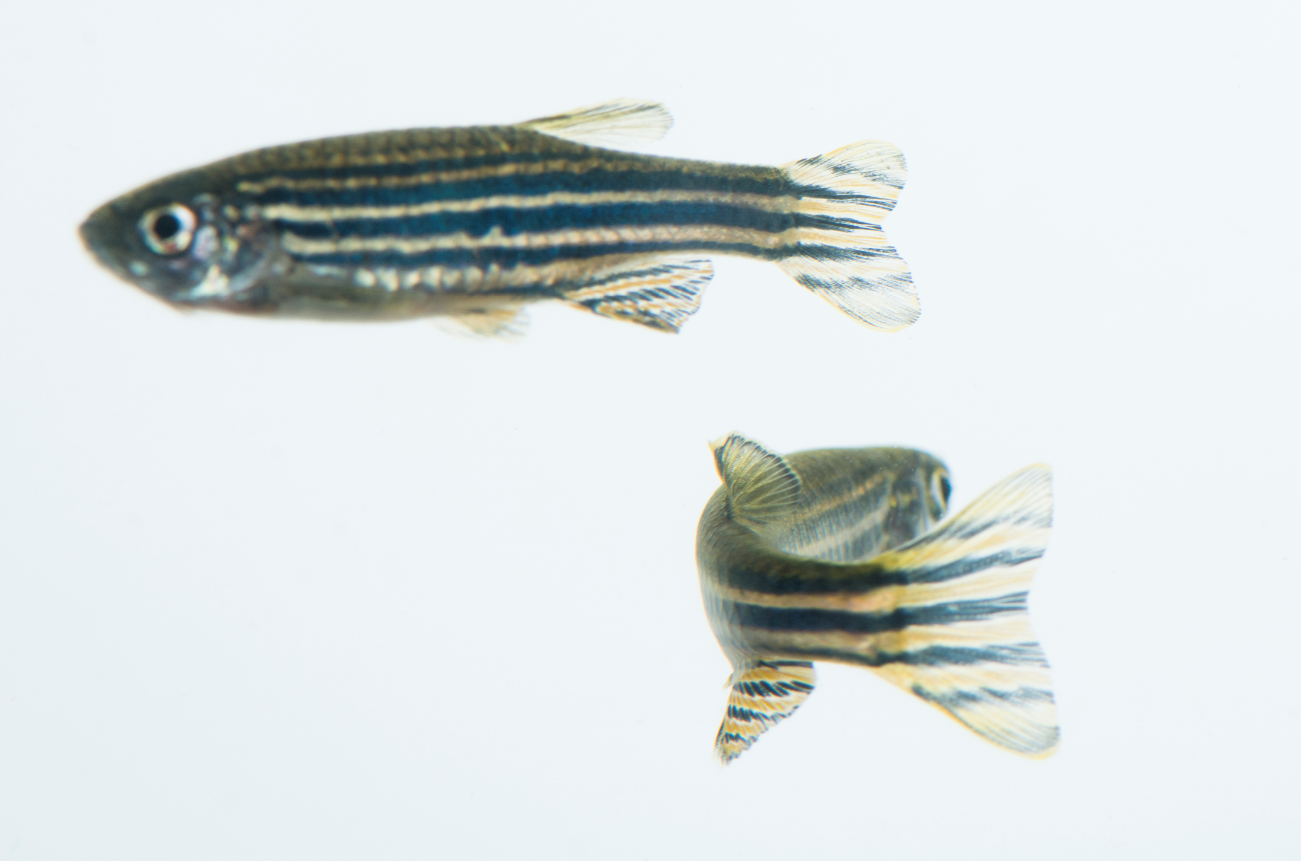
How the pharmaceutical industry is tackling ‘severe’ suffering in animals used in science – online, 2022
- a new group housing approach for animals in metabolism studies
- refining and reducing animal use in challenge potency tests
- refining animal use in Maximum Tolerated Dose studies
and a panel discussion of some of the wider challenges involved and how these are being overcome.
Presentations (PDF 5.5MB) from the event
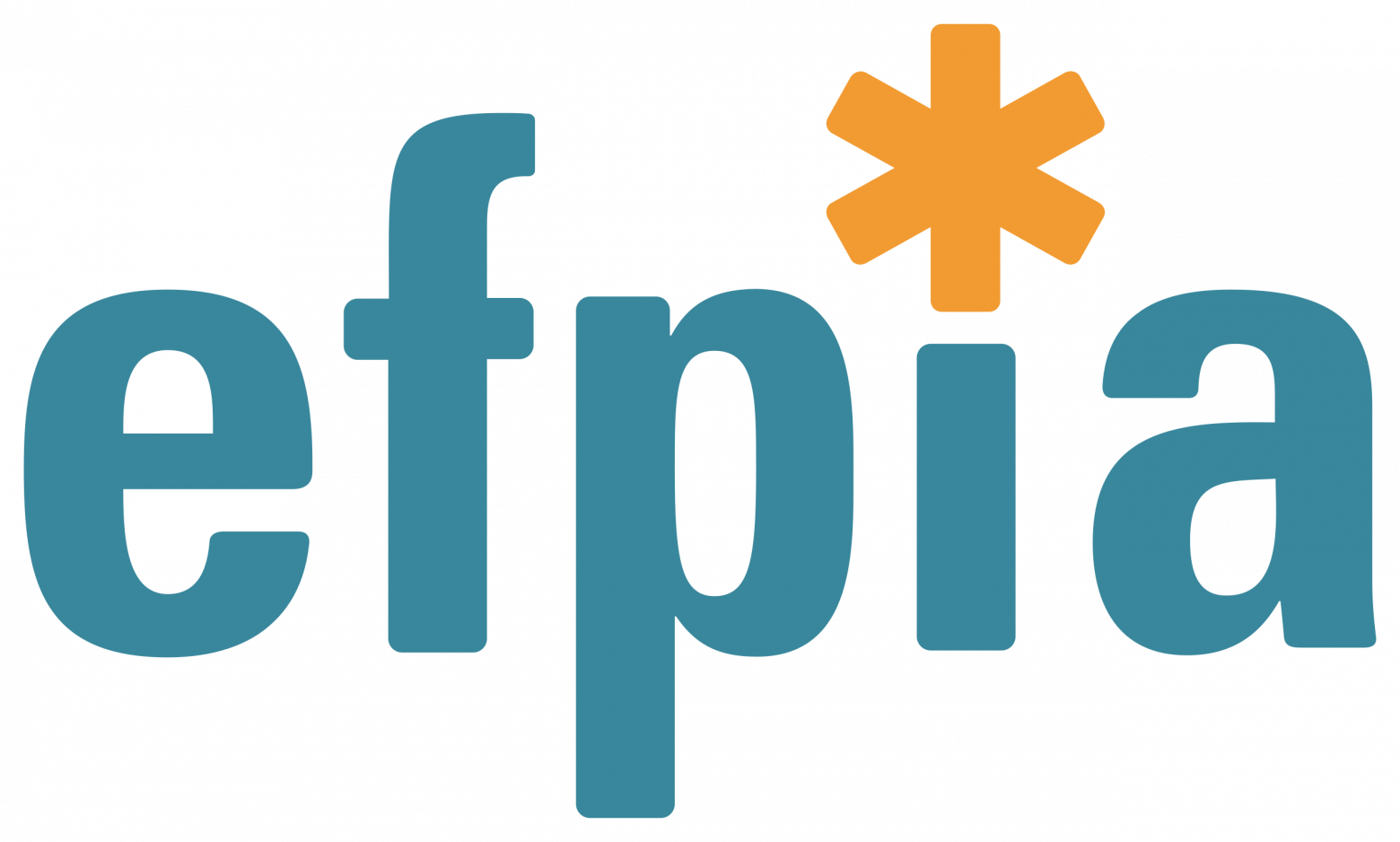
11th World Congress on Alternatives and Animal Use in the Life Sciences – online, 2021
We convened a ‘Focus on Severe Suffering’ session, where speakers covered topics including:
- reducing suffering in animal models of neuropathic and inflammatory pain, sepsis and colitis
- tailoring humane endpoints
- avoiding mortality
Presentation: Introduction to session – Focus on Severe Suffering (PDF 844KB)
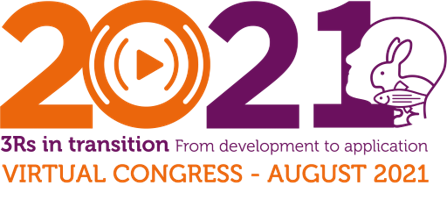
Topics covered in our ‘virtual’ conference on practical refinements for fish used in research and testing, included:
- what is it like to be a zebrafish
- attitudes towards fish welfare and the 3Rs
- using analgesia in fishes
- refining procedures
- welfare assessment
- humane endpoints
Summary report: Focus on Fish (PDF 115KB)

3rd international meeting – Athens, Greece 2019
The programme was based on the ‘Avoiding mortality in animal research and testing’ report, covering three main areas:
- reducing the numbers of animals ‘found dead’
- reducing unpredicted mortality of animals being used in procedures
- challenging perceived requirements for ‘death as an endpoint’ in studies and tests
Meeting summary and action points: Athens (PDF 316KB)
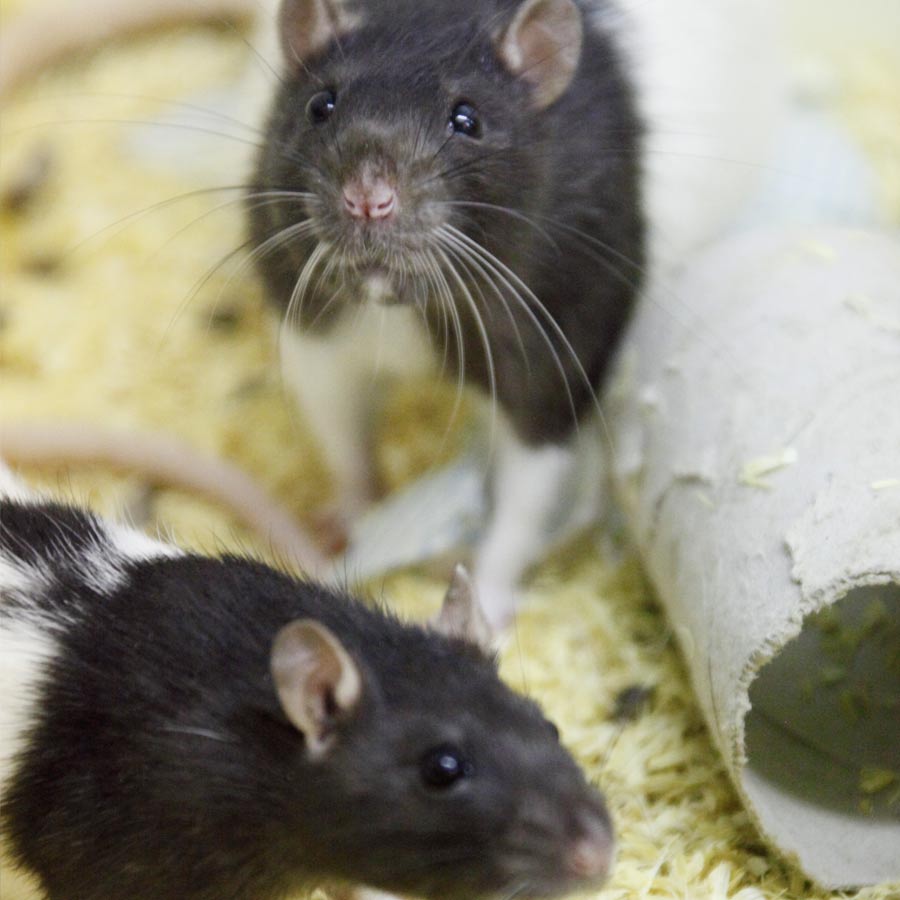
FELASA Congress – Prague, 2019
- Ending severe suffering – where are we now?
- Welfare assessment – recognising severe suffering
- Practical refinements of ‘severe’ suffering animal models and procedures
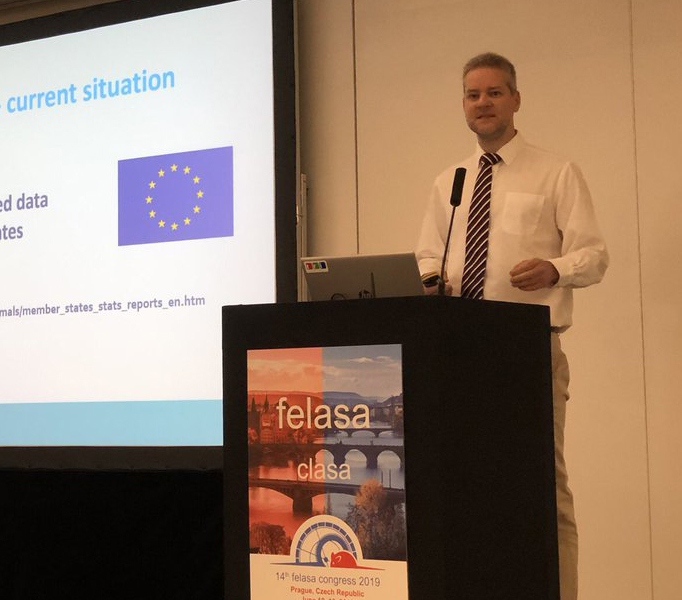
Challenging refinements – Stevenage, UK 2019
The focus for this meeting was strategies for refining models and procedures in which this can be challenging, such as humane endpoints in regulatory tests, and analgesia provision in pain models. The programme included case studies from industry and academia, highlighting how pain, suffering, distress or lasting harm has been successfully avoided or reduced in specific models or procedures such as:
- neuropathic pain
- collagen-induced arthritis
- experimental diabetes
- evident toxicity in regulatory tests
- environmental toxicity testing in fish
Plus discussion on:
how local AWERBs can assist in developing strategies to apply refinement in ‘challenging’ models improving dissemination of information on refinement
Summary report: Challenging Refinements (PDF 356KB)
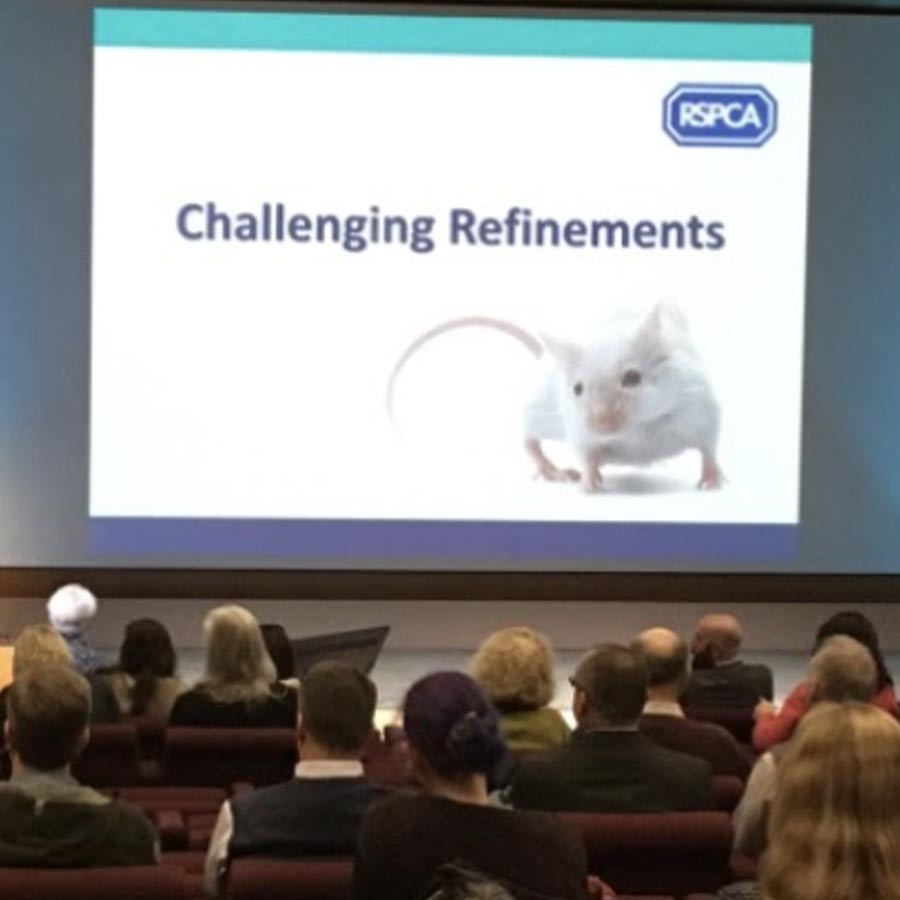
SGV annual meeting – Zurich, Switzerland 2017
We were thrilled to accept the Swiss Laboratory Animal Science Association annual 3Rs award in recognition of our work towards ending severe suffering by implementing humane endpoints, and to give the keynote presentation at their annual conference.
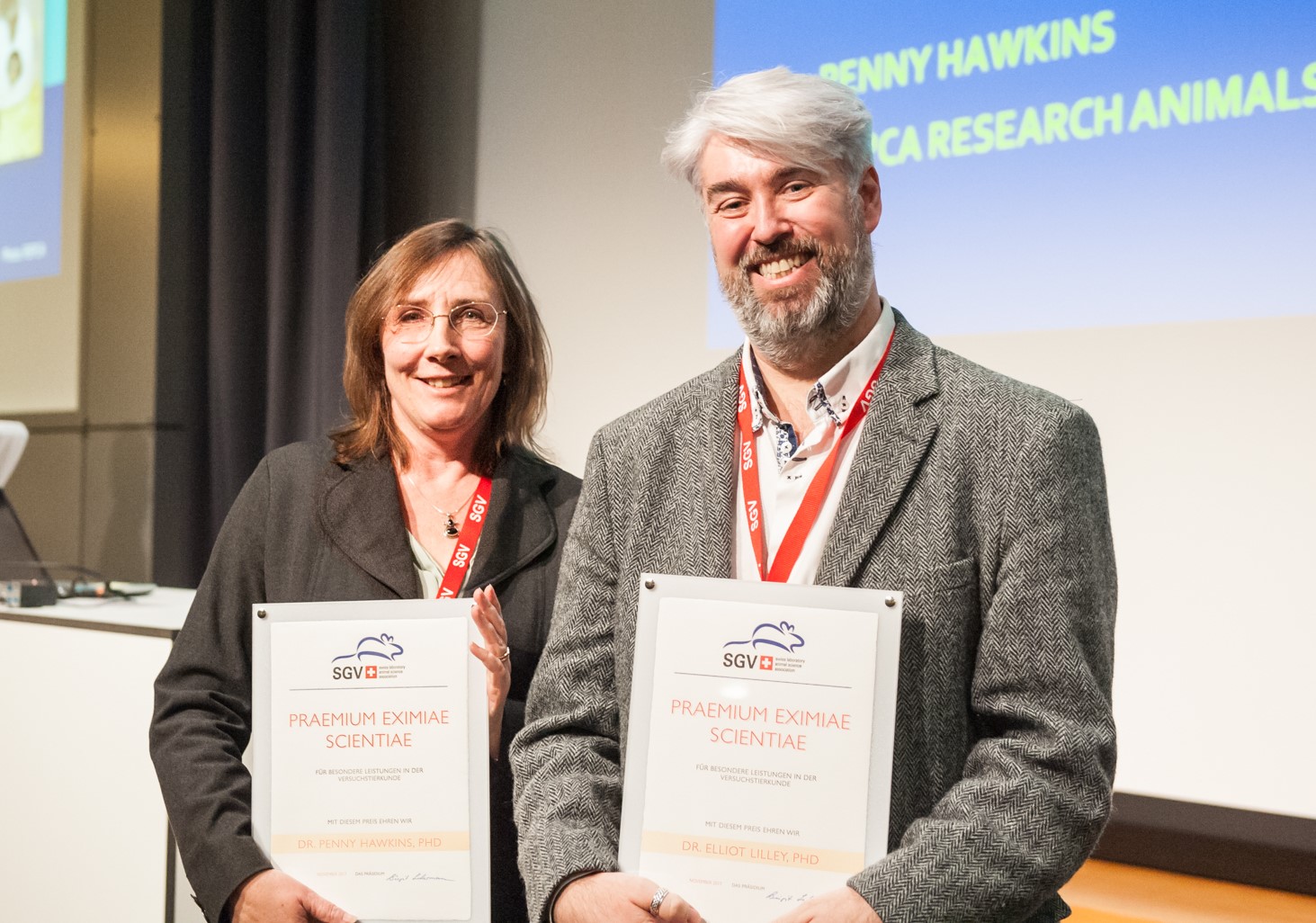
2nd international meeting – Berlin, Germany 2017
The programme included
- a series of case studies in which severe suffering had been successfully reduced
- study areas where challenges and obstacles to reducing or avoiding severe suffering still remain
- prospective severity of procedures
- the harm-benefit assessment
- communicating with the public about ‘harms’, and ‘severe’ suffering
- the role of Animal Welfare Bodies, National Committees and others in sharing good practice
Meeting summary and action points: Berlin (PDF 433KB)
Joint media release from MDC and RSPCA
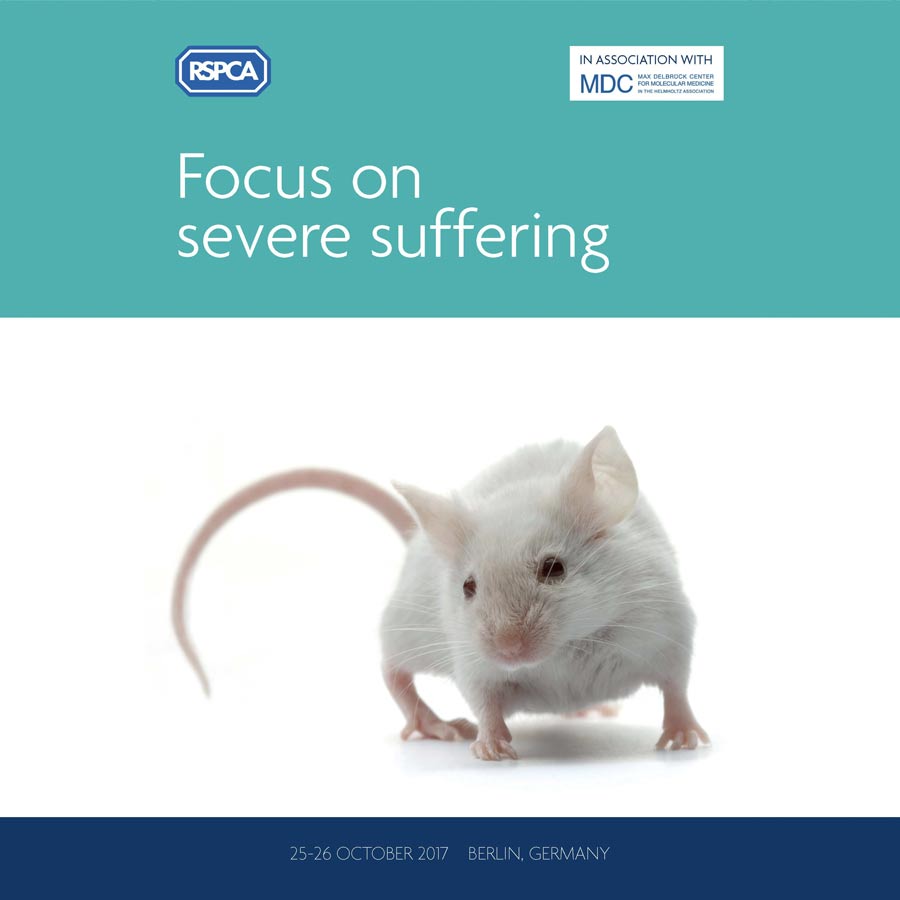
1st international meeting – Brussels, Belgium 2016
- ‘severe’ suffering within the EU
- how pain, suffering and distress are currently identified and assessed in animals
- recent progress in refining procedures and animal care across a range of ‘models’, tests, techniques and species
- future opportunities for refinement
- current potential scientific and other obstacles that will need to be overcome
Meeting summary and action points: Brussels (PDF 108KB)
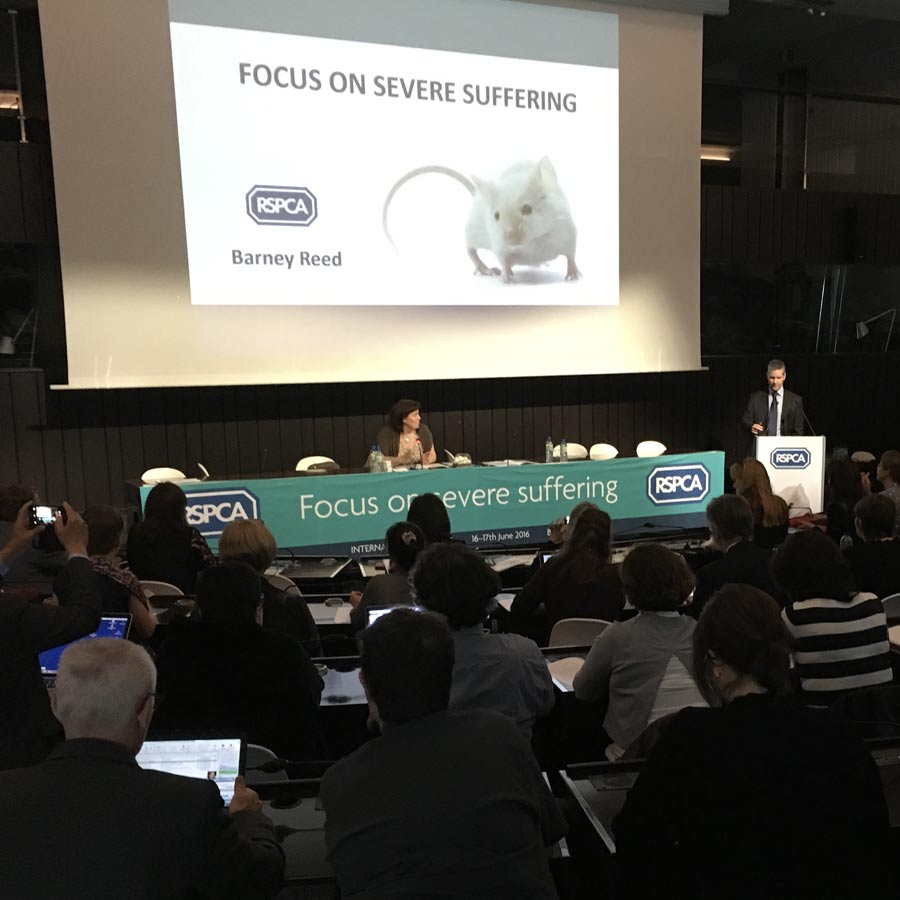
AVOIDING AND REDUCING SEVERE SUFFERING
Avoiding and reducing severe suffering helps to fulfil legal requirements, reduce ethical concerns and improve scientific quality – this website will help you to achieve this.
Practical ways to reduce or avoid severe suffering include: